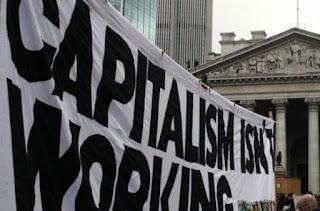Our most divisive issue is also the most misunderstood and incoherent.
As a young boy, I would often take long, lonely walks in the
veld of the Free State Gold Fields: barefoot with hardened soles impervious to
sharp pebbles and blades of dry grass; but still intuitively sensitive to the
energy and magnetism of the virgin earth; the large promise of nature; flat and
wide open spaces; of freedom and the mystery of what lay beyond the horizon. My
fantasy would often expand to owning all of what I could see, giving me a sense
of power, status, security and wealth.
Those two dimensions: the nomad and the settler; the
romantic and the mercenary; and the communal and the territorial, are powerful
primal forces in our relationship with land. They are often contradictory. They
are also, for the most part, mythical, emotive and irrational. Yet they
strongly influence our discourse about land, plunging it into an incoherent
mess. A greater, and more explosive dimension is added by a wider territorial
framing, embellished by the concepts of people and their homeland; tribe and
territory; volk and vaderland; a place and a home; of flags
and anthems; ancestry; culture; tradition; belonging and connection. These are
strong enough to awaken the warrior in pacifist chests, adding volume to calls
to action, and creating a powerful drug to be peddled by populist politicians.
It is small wonder that our debate about land, perhaps the
most divisive issue in South Africa today, is trapped in an echo chamber of
contradictions, conflicting statistics, confusing rhetoric and ideological
warfare. For this column I’m not going to confront the issue some have raised
that the proposed amendments to the Constitution have a much broader and more
invidious implication of expropriation of all property: from your child’s
favourite teddy bear to intellectual property. I don’t think that it is
remotely possible and will bring down the entire economic system. In any case,
the government is quite welcome to nationalise my tortured imperfect thoughts.
Our understanding and hence our whole policy approach to
land transformation could be way off the mark. It has mostly been distilled
into two ill-fitting themes – transfer of agricultural land and transfer of
wealth. The first dominates the discourse and is perhaps the most incoherent of
all, based not only on poor statistics and false assumptions around who owns
what (see this
article by the IRR challenging the 4% black land ownership), but also
whether agricultural land is the real issue at all among the impoverished and
disadvantaged.
All empirical evidence shows differently. Most of the land
invasions and unrest have not been on farms, but in urban areas – people
wanting homes and escaping cramped, poorly serviced living conditions in
exploding townships and settlements. Their inability to achieve that is far
more inflammable, pitching red berets against Red Ants in a fervour fuelled by
anger, hopelessness and despair. I’m convinced that addressing that in land
restitution will defuse most of the emotions far quicker and easier than the
complicated transfer of farms.
It also makes much more sense in the distribution of wealth.
Far more wealth is tied up in residential property than in farming or commerce
and industry. It gives individuals an asset foothold and promotes inclusiveness
in the economy. But that in turn needs a clear approach to private ownership
and title. The Freedom Front Plus may have valid concerns that the government
seems intent on expropriating land for the state and not for private ownership.
The latter would certainly be at odds with the EFF’s “socialist” stance, which then
implies opportunism on their part in using individual aspirations for home
ownership to enrich the state. Surprising to many perhaps, blacks own far more
first homes in South Africa than whites. According to an observation by
economist Mike Schussler recently posted on social media: “Africans own 7,66
million houses (1st houses only) and Whites own 730 000. In total 56% of the
value of 1st houses belong to Africans. Only 33% belong to the white population
group”.
One cannot be dogmatic about state and communal ownership
versus private ownership. There are too many permutations of ownership in
different countries that invalidate ideological prescription. What is useful,
however, is to understand that state ownership (ownership by all) is equal to
ownership by none (not one.) It is then also imperative to have a clear
understanding that government in its various forms: national, local and SOE’s are
not the state per se but agents of the state. In that they cannot represent
“all” and indeed too often act on behalf of a few, including themselves.
Compounding the entire discourse further and much deeper, is
the macroeconomic positioning of land as a “factor of production” next to
labour and capital. It’s perhaps the most essential perspective of all, but it
is rife with complexity. Land for
commercial and industrial use, for example, is more appropriately classified as
capital as a factor of production. Land has virtually disappeared from economic
theory although undeniably still impacts on GDP. (See article
here.) The constantly changing structure of macroeconomics through
technology and human evolvement has meant that the role of land as a factor of
production has become highly flexible and incalculable; in some cases even
irrelevant. A reflection of this is the many small countries with little or no natural
resources that are highly prosperous; and conversely, the many countries with abundant
land and minerals, who are relatively poor.
I am aware that this article may well have raised far more
questions than answers. Perhaps that’s the point. But what should be obvious to
all is that our discourse on land is juvenile, irrational and tragically behind
the times. It is anchored in falsehoods, flawed assumptions, and volatile
emotionalism.

